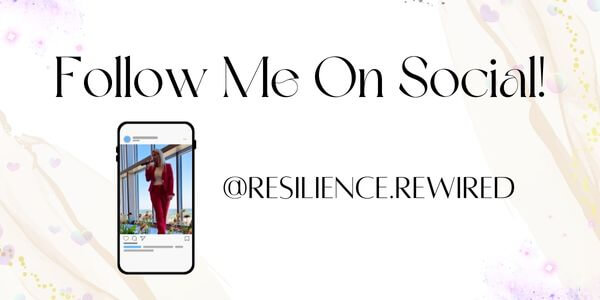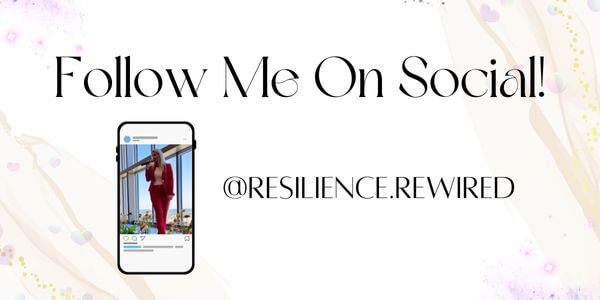
Most self-help books and articles oversimplify the pursuit of happiness. We are told to just practice more gratitude, take a bubble bath, or exercise a few times a week - but will implementing those habits truly make us happier in the long run? Certainly, they will help - but to find TRUE happiness we need first to learn the obstacles that get in our way, and how to overcome them.
This article will equip you with strategies to push aside the obstacles and find true happiness!

Why This Matters
Did you know that heart disease is the #1 cause of death for women - totaling 1 in 3 deaths each year?! Listen up ladies…and gentlemen (it's 1 in 4 yearly deaths for the guys!). We all know that stress is bad for us, but we need to really understand the detrimental effect it has on our health if we don’t get a grasp on it.
Good news - happiness has been shown to lower your risk for cardiovascular disease, lower your blood pressure, increase sleep quality, and improve your diet. Investing in your happiness will not only positively affect your health, but allow you to show up better in your interactions, boost your confidence, and increase your productivity!
Additional health benefits to happiness:
- Lowered risk of diabetes (study)
- Reduced risk of stroke (study)
- Increased immune system (study)
- Lowered levels of cortisol (study)
- Reduced arthritis pain (study)
- Lowered risk of coronary heart disease (study)
- Combat stress more effectively
Want to live longer? Several studies have found that life satisfaction (or happiness) has an impact on longevity. I mean... that is always the goal, right? The list of benefits goes on and on, but you get the point - INVEST IN YOUR HAPPINESS - it'll be worth it!!
Understanding The Obstacles
To find true happiness we first must understand what obstacles get in our way and how to overcome them. There are a lot of factors in our lives - most of which we aren't even aware of - that hinder us from finding true happiness. We live in a society surrounded by distractions and stress, we are constantly rushed and worried about what we have to do next so we often miss what is happening around us.
Obstacles impeding our happiness:
- The way our brains are programmed
- How we attribute our happiness to others
- We are constantly distracted
- We are always feeling rushed, overwhelmed and overworked
- We think material things will make us happy
- Happiness is difficult to measure
- Our preferences change
The good news - we will learn the practical strategies to become more present and focus more on what brings us true happiness.

Reprogram Your Mindset
Do you ever feel like you are surrounded by negativity and stress? Scrolling social media, traumatic articles flooding our news feed, sitting in traffic - it can feel like it’s everywhere! Well, there's actually a name for it - it's called negativity bias - and means that our brains are programmed to focus more on what is going wrong in our environment, than what is going right. Stemming back to prehistoric days, constantly searching for danger helped us stay alive. The problem is - we are no longer being chased by tigers!
Ruby Wax said it best “Your brain is designed to keep you alive. It doesn't give a shit about your happiness.” It's up to us to change that - now let's learn how!
How to implement:
We need to reprogram our brains to focus more on the positive and what brings us true happiness. Be intentional about noticing the positive things happening all around you. A new habit can take 66 days to become automatic so we need to be consistent and patient when implementing new habits and reprogramming our mindset.
Start with once a day - try to be present in the moment and notice something that makes you happy. The more you do this, the more frequent and easier it will become. With all the distractions around us, it can be easy to forget - so use a habit tracker to keep yourself accountable. Do this consistently for at least two months and you will be amazed at how much happiness will start flooding into your life.

Stop Attributing Your Happiness to Others
This might be one of the biggest obstacles to finding true happiness! Listen up.... whether we realize it or not, we often attribute our happiness and self-worth to how we make OTHER people feel. We play many different roles - parent, spouse, friend, employee, etc. - and we often measure our value and happiness based on how well we show up for each of those roles.
As a parent, this can be especially true. Our happiness and self-worth should never be tied solely to how good of a mother/spouse/employee we are. Anyone with kids knows that you could do everything right as a parent and they will STILL have a meltdown! Attributing how we feel to how OTHERS feel can be detrimental because it is completely out of our control.
How to Implement:
The roles we play certainly IMPACT our happiness levels (if your kids/spouse are unhappy, you will likely be too), but that cannot be the only determining factor. We need to instead identify things that make us happy that ARE in our control. Take a few minutes and list out the hobbies or activities that bring you joy, people you enjoy being around, self-care, complimenting someone, exercising, and practicing gratitude - these are all things that YOU can control.
After you have made your list, find ways to incorporate them into your schedule and PRIORITIZE them - when life gets busy and hectic, don't reschedule these - instead, reschedule the activities/people that don't serve you. Investing in this will be sure to bring you true happiness.

Limit Distractions
In today’s society, we are bombarded by distractions. Simply receiving one email can trigger a notification on your computer, phone, and smartwatch… for ONE email! Then add in texts, social media, reminders to stand, and the list goes on. We probably don’t go even an hour without receiving a notification on our devices - no wonder we are always distracted!
Social media is a huge distraction - these apps actually use algorithms that mirror those used in slot machines - which elicit cravings similar to addiction. Technology is constantly battling for our attention and makes it difficult to focus, be productive, and find true happiness. These distractions can also cause us to miss the abundance of beautiful things happening around us.
How to implement:
One of the biggest indicators of happiness is being present - in the moment, and during interactions with others. A study by Harvard psychologists found that happiness was measured at the highest levels when participants were present in the moment - regardless of what they were doing. Meaning, that we are happier doing an unpleasant activity when we are fully present than doing a pleasant activity when we are distracted. Being fully present allows us to connect with our emotions, engage our senses, and truly appreciate all that is happening around us.
When having conversations with others, put your phone down or in the other room, and try not to check notifications on your watch. You know how annoying it is to talk to someone when they are texting on their phone and not listening! Giving others your undivided attention will not only improve your conversations but will also build trust and respect.
Other tips to be more present:
- Set time limits on social media apps (in your settings)
- Disable notifications for non-urgent apps
- Stop multi-tasking - research shows we are up to 40% LESS productive when we do (study)
- Use the Pomodoro Method (one task for 25 minutes, then 5 min break, repeat)
- Buy a timer to keep you focused on the one task at hand
True happiness comes when we are fully present, which can be very difficult in today's society. Be conscious and intentional in putting devices down so you can truly appreciate all the positive things happening around you.

Slow Down
Constantly rushing from meetings to kid's events, running late, always worrying about your never-ending to-do list - does this sound familiar? Not only do we try to balance 9,000 different spinning plates, but we also try to do them all perfectly - so it's no wonder we are always rushed, overwhelmed, and burnt out!
True happiness is difficult to achieve when we are in a constant state of stress, and we all know the negative impacts that stress has on our physical and mental health. Unfortunately, the following strategies won't eliminate stress altogether (sorry!) - stress will always be around us, but they will hopefully help you better manage it.
How to implement:
Slow down and take a breath. Much easier said than done… I know, trust me. We cannot find true happiness when we are rushing around and stressed out so try not to overcommit yourself. Take breaks, get outside, and take a walk. Here are some other healthy habits to implement.
It's okay to NOT be perfect - We cannot “do it all” … and that is OK! We need to accept that we are just doing our best and that is all we can do.
Prioritize & plan ahead- If your to-do list has 65 things on it, be selective in picking your TOP 2 most important tasks for each day and focus just on those to avoid multitasking. Plan your day the night before so you start your day calm, organized, and productive.
Say NO to things (and people) that don't serve you - We often over-commit ourselves and say yes to WAY too much. Attending 6 birthday parties in one month is NOT a top priority. I know you want to attend every event for your kids but remember...prioritizing other people’s happiness will negatively impact your own!
Implement these strategies to become less overwhelmed and stressed, and you will be on your way to finding true happiness.

Material Things Won't Make You Happy
Have you ever wanted something so bad, and shortly after buying it all the excitement and joy dissipated? This happens to everyone! Whether it's a purse or a car - you get a quick boost of joy, and then the happiness eventually fades.
Harvard Psychologist Dan Gilbert, says our beliefs about what will make us happy are often wrong. It's not our fault - we THINK at the time we buy something that it will bring us lasting happiness but in reality, it just elicits artificial happiness. This is because according to Dalai Lama, external circumstances cannot create lasting happiness, it's our mental state that determines how we perceive the world. Read that again, that is super powerful! True happiness will come from your mindset and attitude, not a pair of shoes.
How to implement:
Take 3-5 minutes to sit down and create a list of all the things that make you truly happy - and try to AVOID listing material things. Focus on things in your control and invest time into creating a resilient mindset.
Spending money on things to elicit happiness is NOT frowned upon - but just know that it won't create lasting happiness. One study showed regardless of their background, participants reported being happier from purchasing an experience than a materialistic purchase. Buy an experience - book a trip, sign up for a cooking, or try a new hobby.

Make Your Happiness Measurable
How do you even measure happiness? There are tons of assessments out there, but what factors do they use to measure happiness levels? The difficulty in easily measuring happiness impedes us from regularly checking in on our own happiness. We pay attention to our water intake, hours of sleep, and exercise - but how often are we assessing how happy we are? Our happiness can have a transformational impact on all other areas of our lives (negatively or positively) so we need to start prioritizing this!
How to implement:
Before you can measure happiness, you first need to define it. Similar to “success”, happiness is subjective and everyone has their own definition. Ultimately it will come down to what happiness means TO YOU. Take a minute to answer that - your answer will be your guide to measuring your true happiness levels.
Next, make sure to routinely check in with yourself. One thing to call out - It's OK to not be super happy all the time - let me say that again… its OK to not be happy all the time. We are constantly trying to manage 600 things and often get overwhelmed - that is normal! If you find that you are not as happy as you want to be - refer back to your list and prioritize those things more in your schedule.
Regularly Reassess What Makes You Happy
As with most things, what makes us happy can change over time. Our lives and priorities are constantly shifting as we navigate different ‘seasons of life’ - but with change also comes growth. Sometimes we set a goal and in the process of chasing it, realize we don't actually want that goal anymore - and that is OK.
Just as a toddler is constantly changing the foods they like (parents, you know that battle), our preferences about what we enjoy also shift. What made us happy 2 years ago may not make us happy now, or maybe you have discovered NEW things that bring you true happiness.
How to implement:
We are constantly doing new activities and meeting new people so you will need to regularly reassess and update your list. Add, change, and delete things to adjust to where you are today. Remove things/people that no longer serve you anymore and add new things that you have recently discovered.

Wrap It Up
Thanks for sticking through to the end! To find true happiness we need to break down all the obstacles that get in our way and create a game plan to overcome them. You have now learned some strategies to push them aside and find true happiness in your life.
Why this matters: investing in your happiness can have COUNTLESS health benefits and increase your longevity (that's always our goal, right?)
Obstacles and Strategies:
- The way we are programmed - fix: Seek out the positive
- Attributing our happiness to others - fix: Only focus on what YOU can control
- Constantly distracted - fix: Be present & set limits on technology
- Rushed, overworked, and overwhelmed - fix: Prioritize, say NO and be OK not being perfect
- Material things don't make us happy - fix: Buy experiences
- Difficult to measure - fix: Define what happiness means to you and regularly check-in with yourself
- Our preferences change - fix: constantly reassess what makes you happy
Remember, this article is meant to help alleviate stress, not create additional burden so don’t overwhelm yourself trying to implement a bunch of new strategies.
Take it slow, do what you can, and know YOU ARE A ROCK STAR MY FRIEND!

I WANT TO HEAR FROM YOU - Let me know in the comments which of these tools you are going to implement and don't forget to follow along HERE to follow my habit journey alongside you!
MORE ARTICLES LIKE THIS!
This article was edited by: Brooke Scott
Citations:
- Lowered risk of cardiovascular disease - https://www.nm.org/healthbeat/healthy-tips/how-happiness-impacts-health#:~:text=Protecting%20your%20health%3A%20Happiness%20lowers,regular%20exercise%20and%20reduces%20stress.
- Lowered risk of diabetes - https://www.ncbi.nlm.nih.gov/pmc/articles/PMC8395426/
- Reduced Risk of Stroke - https://pubmed.ncbi.nlm.nih.gov/11292267/
- Increased Immune System - Cohen, J., Cohen, P., West, S. G., & Aiken, L. S. (2003). Applied multiple regression/correlation analysis for the behavioral sciences (3rd ed.). Lawrence Erlbaum Associates Publishers.
- Lower cortisol - Steptoe A, Dockray S, Wardle J. Positive affect and psychobiological processes relevant to health. J Pers. 2009 Dec;77(6):1747-76. doi: 10.1111/j.1467-6494.2009.00599.x. Epub 2009 Sep 30. PMID: 19796062; PMCID: PMC2787693.
- Reduced pain - Fredrickson BL. The broaden-and-build theory of positive emotions. Philos Trans R Soc Lond B Biol Sci. 2004 Sep 29;359(1449):1367-78. doi: 10.1098/rstb.2004.1512. PMID: 15347528; PMCID: PMC1693418.
- Lowered risk of coronary heart disease - https://www.ncbi.nlm.nih.gov/pmc/articles/PMC2862179/
- Longevity - Carstensen, L. L., Turan, B., Scheibe, S., Ram, N., Ersner-Hershfield, H., Samanez-Larkin, G. R., Brooks, K. P., & Nesselroade, J. R. (2011). Emotional experience improves with age: evidence based on over 10 years of experience sampling. Psychology and aging, 26(1), 21–33. https://doi.org/10.1037/a0021285
- Harvard study on being present - https://www.science.org/doi/abs/10.1126/science.1192439
- Multitasking and productivity - https://www.psychologytoday.com/us/blog/brain-wise/201209/the-true-cost-of-multi-tasking
- Happiness and material purchases - https://psycnet.apa.org/doiLanding?doi=10.1037%2F0022-3514.85.6.1193











0 Comments